Accordingly, the Plan sets out the common goal of: Completing the treatment of hot spots and areas contaminated with toxic chemicals/dioxins after the war in Vietnam; controlling all risks of toxic chemicals/dioxin on human health so as not to increase the number of victims; reviewing and identifying the victims of toxic chemicals/dioxin in Vietnam, supporting the victims to overcome difficulties and integrate into the community; building sufficient capacity to effectively assess, control, process, analyze and manage all post-war toxic chemicals/dioxin remedial activities in Vietnam.
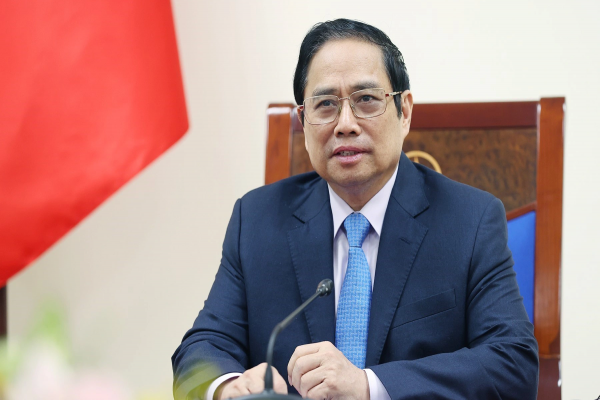 |
Prime Minister Pham Minh Chinh |
Specific objectives include: Completing the treatment of all hot spots and areas contaminated with toxic chemicals/dioxins after the war in Vietnam; by 2025, completing pollution treatment at A So airport area (Thua - Thien Hue province), Phu Cat airport area (Binh Dinh province); before 2030, completing treatment at Bien Hoa airport area (Dong Nai province) and newly discovered areas. By 2025, over 85% of the risk of toxic chemicals/dioxin exposure will be controlled at hot spots and polluted areas, and by 2030 there will be no further victims in these areas. By 2030, completing the identification of victims across generations who fully meet the prescribed conditions; victims are entitled to regimes and policies of the State to improve their living standards; providing favorable conditions for the victims to have jobs, overcome difficulties, integrate into the community, and rise up in life. Ensuring that 100% of pregnant women in heavily polluted areas and 100% of victims receive pregnancy management and fertility counseling to reduce the risk of increasing victims in the next generations. Building and updating databases and information to meet the management requirements of post-war remedial activities of toxic chemicals/dioxins…
To achieve those goals, the Government's Action Plan sets out 6 specific tasks and solutions:
Firstly, reviewing, developing and finalizing legal documents, regulations, and standards on overcoming consequences of toxic chemicals/dioxins. Urgently organizing the review, development and completion of legal documents and specific guiding documents to remove shortcomings, limitations and difficulties, soon complete the identification of all victims through the generation; studying and adjusting regulations to ensure that victims are entitled to appropriate regimes and policies of the State so that they can improve their life, are provided with favorable conditions for employment, overcome difficulties, integrate into the community, and rise up in life. Continuing to review and perfect regulations and standards on monitoring, evaluation and handling of toxic chemicals/dioxins in the direction of ensuring safety for human health and the environment, in accordance with international standards and the specificity of pollution in Vietnam.
Secondly, promoting propaganda and awareness raising about the post-war remedial work of chemical weapons/dioxins in Vietnam. Continuing to propagate and raise awareness and responsibility of all levels, sectors, domestic and international organizations and individuals to strongly promote the work of overcoming consequences of toxic chemicals/dioxins after the war in Vietnam. Paying attention to the use of reputable domestic and international media; organizing projects and programs to propagate Vietnam's efforts and achievements in handling toxic chemicals/dioxin contamination in hot spots and the results of caring for and helping the victims; raising awareness to proactively prevent exposure and minimize harm to people. Promoting the roles and responsibilities of Party committees and authorities at all levels in leading and directing the renewal of propaganda contents, forms and measures in order to well organize the implementation of Directive No. 43-CT/TW dated May 14 2015 of the Secretariat on strengthening the leadership of the Party in dealing with the consequences of the toxic chemicals used by the US during the war in Vietnam, regulations on preferential treatment for resistance activists infected with toxic chemicals in the Ordinance on incentives for people with meritorious services to the revolution in 2020 and related documents.
Thirdly, accelerating the process of handling toxic chemicals/dioxins, controlling the risks of exposure, and preventing the increase of victims. Implementing the projects on handling toxic chemicals/dioxin after the war in Vietnam according to the schedule; ensuring that by 2025, pollution treatment will be completed at A So airport area (Thua Thien - Hue province), Phu Cat airport area (Binh Dinh province); by 2030 completing the pollution treatment project at Bien Hoa airport area (Dong Nai province); continuing to carry out projects and tasks of investigation, assessment, zoning, and timely handling so as not to increase victims in these areas. Implementing appropriate and effective measures to control the risks of exposure to toxic chemicals/dioxin to humans and the environment; ensuring that pregnant women in heavily polluted areas and victims receive pregnancy management and fertility counseling to reduce the increased risk of victims in subsequent generations.
Fourthly, implementing good regimes and policies for victims of toxic chemicals/dioxin. Regularly implementing well regimes and policies of the State in combination with programs, projects and schemes with resources mobilized from domestic and international organizations and individuals in accordance with the provisions of law, ensuring that living standards of all victims are improved, and they are provided with appropriate employment to be able to integrate into the community, and rise up in life. Continuing to implement programs, schemes, projects, tasks of investigation, survey, statistics and identification of victims; further researching the 3rd generation and the next generations and those on duty in hot spots contaminated with toxic chemicals/dioxins since April 30, 1975 to date.
Fifthly, strengthening state management, capacity building, and conducting scientific and technological research in overcoming consequences of toxic chemicals/dioxin. Promoting the role of the Standing Body of the 701 Steering Committee in directing, coordinating and inter-sectoral coordination. Consolidating the organization, training and deploying appropriate staff, investing in facilities, supplementing equipment, continuing to build and update the information database, ensuring that by 2025 agencies and unit acquire advanced and modern capacity, meeting the requirements of assessment, monitoring, controlling, treatment, health care, and improving victims' living standards; effectively managing results of post-war remedial activities of toxic chemicals/dioxins in Vietnam. Continuing to implement programs, projects, schemes, topics, research tasks to overcome the consequences of toxic chemicals/dioxin on human health and the environment; focusing on research to solve existing problems and limitations in identifying victims across generations; conducting researches in technological transfer in controlling and treating pollution of toxic chemicals/dioxins; organize research, apply advanced models, build projects to form centers for care, treatment and rehabilitation, improve quality of life, create suitable jobs for victims; organization of advanced technical research for early detection and early intervention of malformations and defects, pregnancy management, and reproductive counseling for victims and at-risk subjects.
Finally, strengthening international cooperation and socializing the remedial work of toxic chemicals/dioxin. Evaluating the effectiveness of international cooperation projects on overcoming the consequences of toxic chemicals/dioxin in recent years. Review international commitments and agreements, promote the lessons learned to build cooperation programs for effective implementation in the coming time. Continue to strengthen international cooperation to attract the attention and support of countries and international organizations in securing financial resources, equipment, technology, personnel training, and experience sharing in order to speed up the work of overcoming the consequences of toxic chemicals/dioxin after the war in Vietnam…



_thumb_720.jpg)








_thumb_720.jpg)

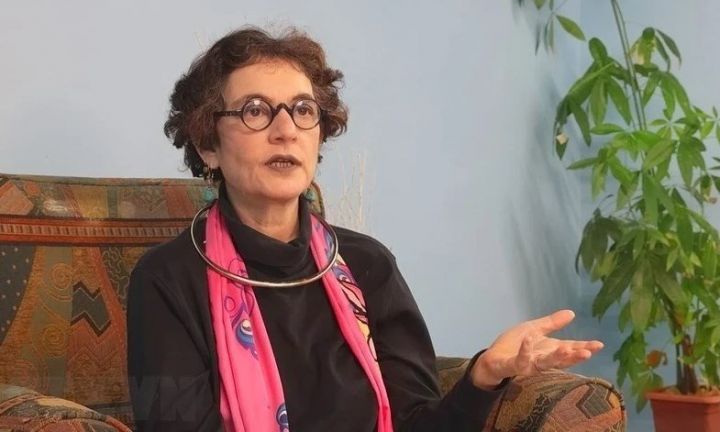









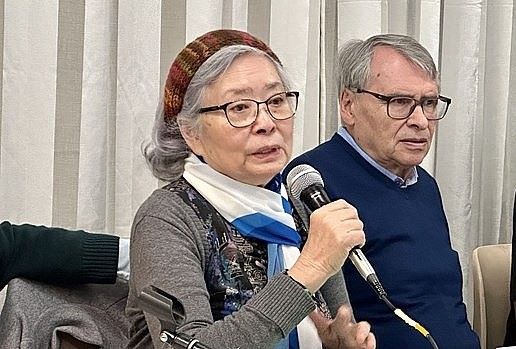
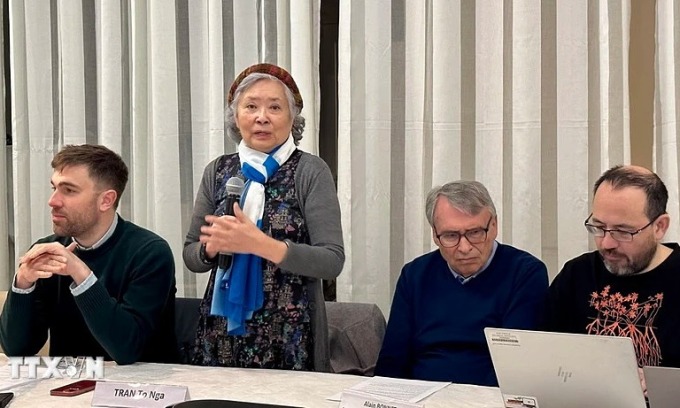

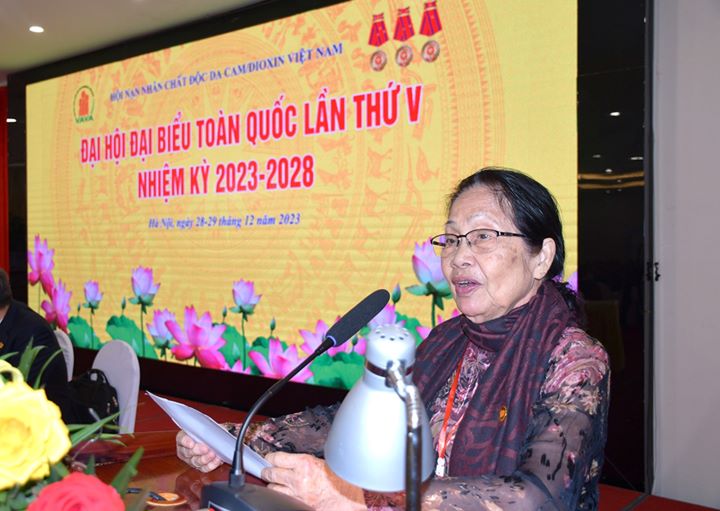



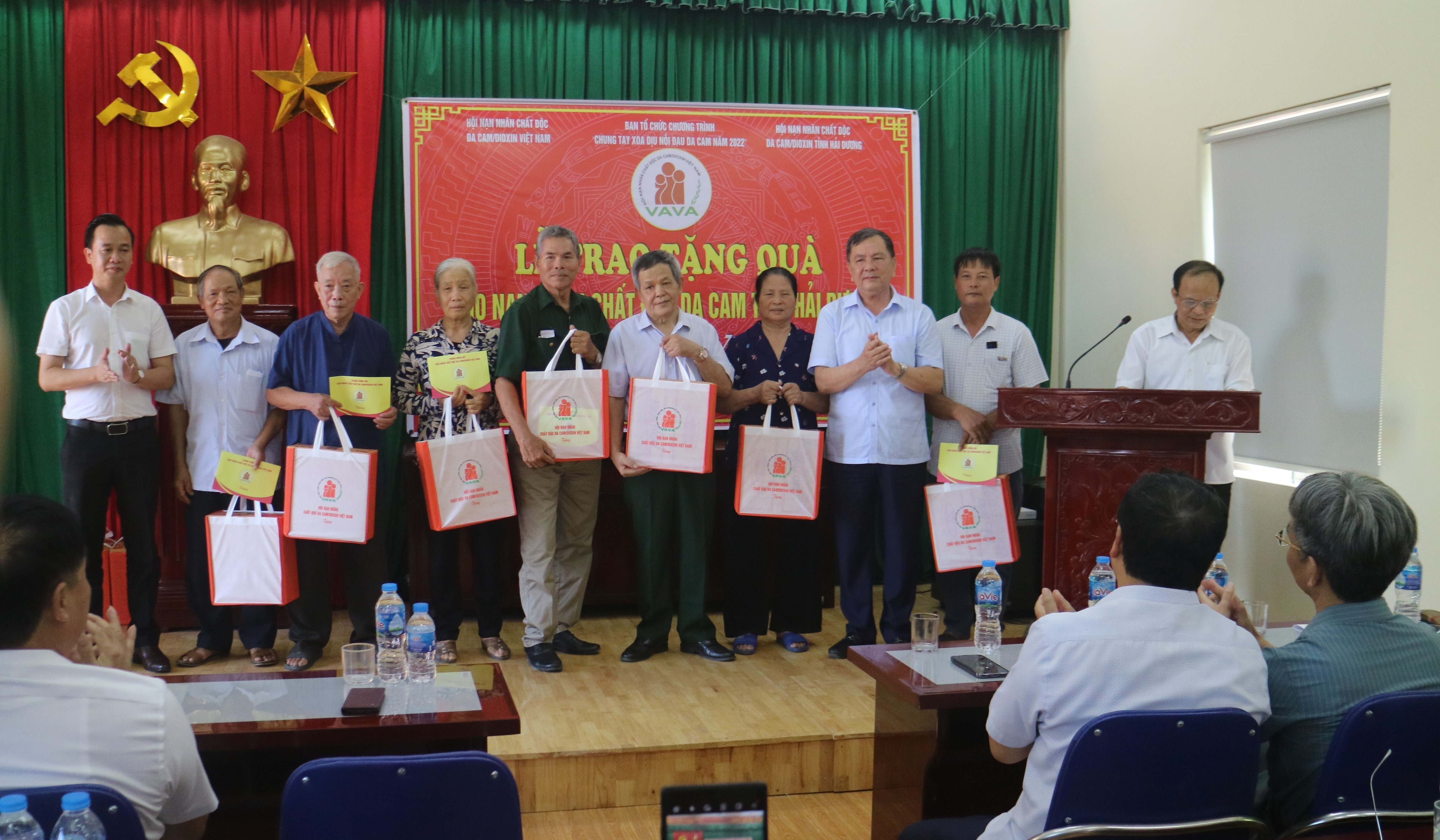
Comment